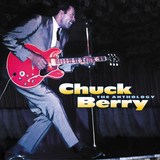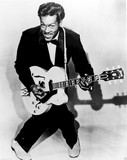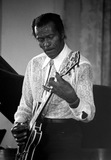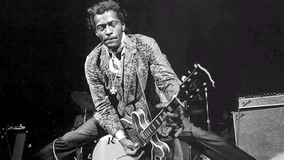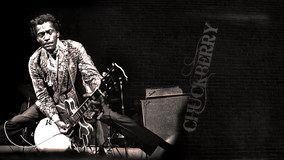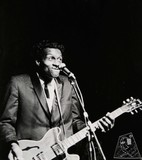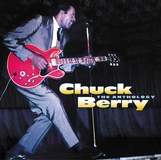Charles Edward Anderson "Chuck" Berry (born October 18, 1926) is an American guitarist, singer and songwriter, and one of the pioneers of rock and roll music. With songs such as "Maybellene" (1955), "Roll Over Beethoven" (1956), "Rock and Roll Music" (1957) and "Johnny B. Goode" (1958), Chuck Berry refined and developed rhythm and blues into the major elements that made rock and roll distinctive, with lyrics focusing on teen life and consumerism and utilizing guitar solos and showmanship that would be a major influence on subsequent rock music.
Born into a middle-class family in St. Louis, Missouri, Berry had an interest in music from an early age and gave his first public performance at Sumner High School. While still a high school student he served a prison sentence for armed robbery from 1944 to 1947. On his release, Berry settled into married life and worked at an automobile assembly plant. By early 1953, influenced by the guitar riffs and showmanship techniques of blues player T-Bone Walker, he was performing in the evenings with the Johnnie Johnson Trio. His break came when he traveled to Chicago in May 1955, and met Muddy Waters, who suggested he contact Leonard Chess of Chess Records. With Chess he recorded "Maybellene"—Berry's adaptation of the country song "Ida Red"—which sold over a million copies, reaching No. 1 on Billboard's Rhythm and Blues chart. By the end of the 1950s, Berry was an established star with several hit records and film appearances to his name as well as a lucrative touring career. He had also established his own St. Louis-based nightclub, called Berry's Club Bandstand. But in January 1962, Berry was sentenced to three years in prison for offenses under the Mann Act—he had transported a 14-year-old girl across state lines.

